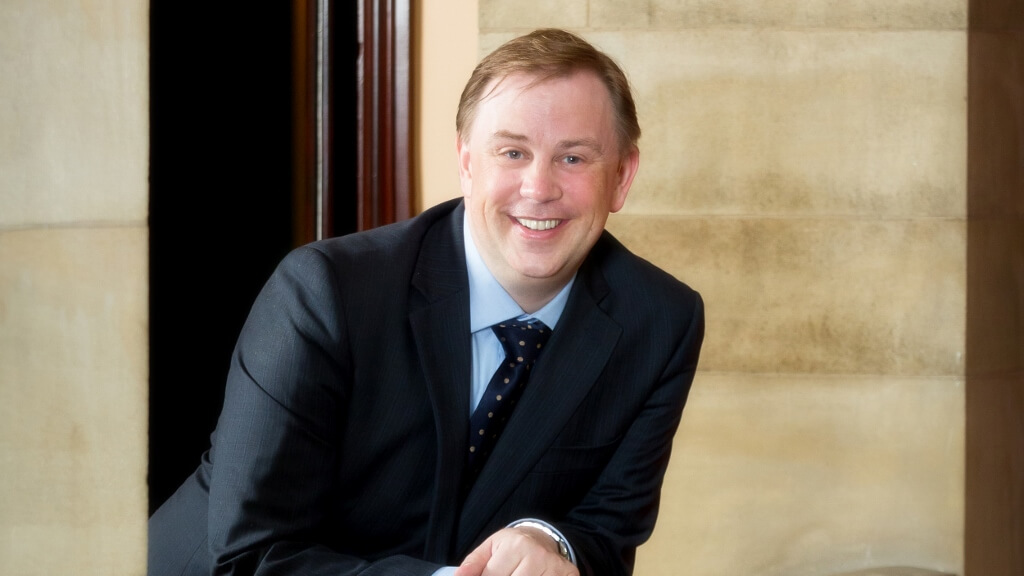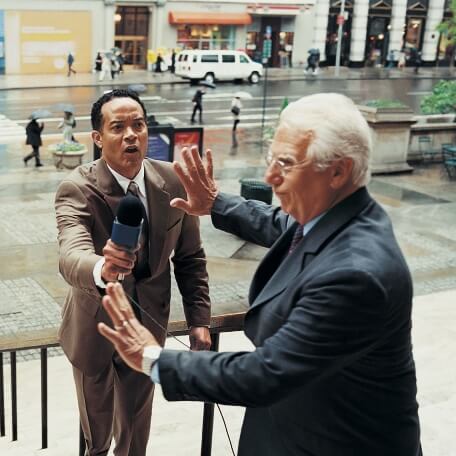Rich Pickings In The Luxury Economy
Paul Russell is searching for golden opportunities in the world's up-and-coming economies.

Paul Russell, director and co-founder of Luxury Academy London, explains why emerging economies are huge centres of growth for the $200 billion global luxury market and how his business is satisfying the central need for first class service.
Let’s hear about your business
Luxury Academy works with companies in the luxury market, training their staff to deliver outstanding customer experience. Our expertise lies in our understanding of the luxury market, which means that courses are tailored to the specific needs of the luxury customer.
We might work with a luxury brand enabling their staff to understand high net-worth (HNW) individuals, with management teams on their leadership skills or train front line staff in communication or customer service skills. I set up the business alongside my business partner Shanine in 2012, and in those five short years we have achieved an incredible amount.
Why did you think it would work?
Luxury Academy was born of my frustration in trying to find training that was specifically tailored to the luxury market. I qualified as a workplace psychologist and worked with many of the larger luxury hospitality brands like the Savoy Group, Four Season, St. Regis, Renaissance Hotels and Marriott in management positions around the world. But when it came to finding training for my staff, it just wasn’t possible.
The training that was on offer at the time wasn’t specific to the luxury market. That matters because in the luxury industry, standards are not only higher but customers evaluate their experience based upon different parameters.
It was bizarre to me, and also frustrating that I had this high end product but not the means to train staff to deliver it effectively. Luxury Academy came at the right time for the hospitality industry, and we were delighted when they welcomed us so enthusiastically.
How has the business evolved?
It was perhaps two years into the business that we realised that the hospitality industry alone wasn’t going to drive growth in the way that we wanted. So we needed to consider other audiences and widen our focus. We do still offer specific courses tailored to the hospitality and retail industries, but this is now part of our offering within the larger luxury market.
We also considered that the luxury market in the UK is relatively mature and identified new markets where luxury was still in the growth stages, like India. With three offices in India, as well as our original London base, we are well placed to work with luxury clients globally.

There are emerging centres for luxury in fast growing economies like India
Is this a buoyant market for business?
The luxury market is a $200 billion industry that has adapted to the modern world. Through globalisation, technological advancements, and economic and market changes, it has emerged with its brand equity as strong as ever.
As well as India, the luxury industry is still in the growth stages in economies such as Russia and the Middle East, and this ensures that the market remains buoyant. Luxury also leads the way for other businesses, with the majority of customer trends both in terms of product and experience originating within the luxury market.
The luxury industry will continue to evolve in line with customer tastes, the creation of new, extraordinary products and services, and the business landscape, and its leaders will continue to embrace these changes and continually redefine luxury.
How have you marketed the business?
People often find this hard to believe, but we did no marketing at all in the early days. Once we had our first client, companies came to us through recommendation and we built the business that way. Certainly, we never advertised. As for today, we focus our efforts on digital marketing and PR, engaging with clients and prospective clients through video content, emails, articles and blogs.
Have you experienced problems? If so, how have you overcome them?
When we first opened in India, we hadn’t anticipated quite how different the market was from the UK, especially in terms of how business is done. In India, personal connections and face to face meetings are the basis for working together.
We’d invested a huge amount in setting up workshops but didn’t have those relationships in place first. Once we realised our mistake, we approached it differently and with a greater understanding of the culture. Thankfully, our efforts paid off.
What is the hardest thing about running your own business and what makes it fulfilling?
The hardest part is perhaps also the best; the travel. I grew up in India and now divide my time fairly equally between India and the UK. I’m privileged to be able to live in two countries both of which feel like home to me, but obviously the constant travel between the two can take its toll at times.
In those first seconds after waking, I’m working out where in the world I am! Quite simply, the clients are what make it fulfilling for me and being able to solve a real business need that will help them to differentiate themselves in the only way that matters- through their people.

Understanding the differences in approach to business is a key ingredient in international trade
What sets your business apart from the rest?
Well quite apart from the fact that we are a rare breed, and one of only a very few companies in the world that offer training specifically for the luxury market, we are extremely discreet.
A client can be confident that we are not going to broadcast the details of the programmes they are implementing, the training they are undertaking, or indeed even that they are clients at all. We know the industry inside out, and have a global perspective that works well for brands that operate internationally.
How have you developed your people and kept them engaged?
As a training company, our investment in our staff is naturally excellent. We see the benefit in training our staff to the highest level. Many of our trainers already possess MBA’s and what we can offer them is an interesting career in an exciting industry with a company that is progressive, dynamic and people focused.
What are your 3 top tips for people starting a business today?
My first is the holy grail of business- to develop a completely unique offering. Others might come after you but by that time if you have done things right, you will be firmly positioned in the market and have a strong customer base to allow yourself to compete effectively.
The second is to invest in your staff. They are the people who are delivering the experiential elements of your product, or even your complete service, on the front line and can make or break your business.
The third is to know everything there is to know about your industry, not only before you take the plunge but as your business develops so that you are poised to pivot if required.
Thanks for signing up to Minutehack alerts.
Brilliant editorials heading your way soon.
Okay, Thanks!


